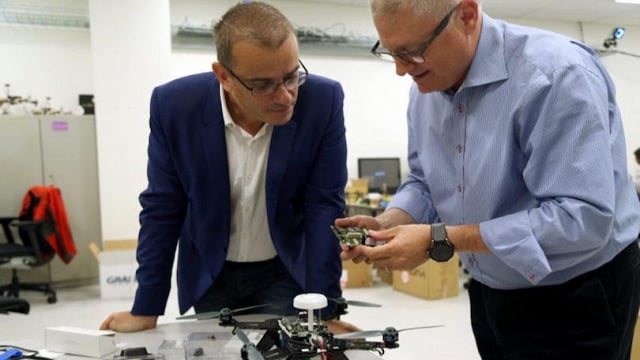-
Tips for becoming a good boxer - November 6, 2020
-
7 expert tips for making your hens night a memorable one - November 6, 2020
-
5 reasons to host your Christmas party on a cruise boat - November 6, 2020
-
What to do when you’re charged with a crime - November 6, 2020
-
Should you get one or multiple dogs? Here’s all you need to know - November 3, 2020
-
A Guide: How to Build Your Very Own Magic Mirror - February 14, 2019
-
Our Top Inspirational Baseball Stars - November 24, 2018
-
Five Tech Tools That Will Help You Turn Your Blog into a Business - November 24, 2018
-
How to Indulge on Vacation without Expanding Your Waist - November 9, 2018
-
5 Strategies for Businesses to Appeal to Today’s Increasingly Mobile-Crazed Customers - November 9, 2018
Google’s Project Tango partner Movidius to be acquired by Intel
Intel is intent to boost its RealSense platform by acquiring Dublin-based computer vision startup Movidius.
Advertisement
“Movidius’ market-leading family of computer vision SoCs complements Intel’s RealSense offerings in addition to our broader IP and product roadmap”, wrote Walden.
For example, Movidius’ latest SoC, the Myriad 2, fits a high-performance, low-power consumption processor with a programmable architecture onto a fingernail-sized chip.
Essentially, computer vision is a technology that aims to give computers and smart machines the ability visually process their surroundings and act accordingly. The SoC is notably used with Google’s Project Tango to power augmented reality (AR) software, now found in Lenovo’s Phab 2 Pro smartphone. “Specifically, we will look to deploy the technology across our efforts in augmented, virtual and merged reality (AR/VR/MR), drones, robotics, digital security cameras and beyond”.
Readying for the takeoff of such nascent categories as drones, robots and VR, the deal will position Intel as a leader of Cloud-to-device providers, said Josh Walden, senior VP and general manager, Intel new technology group, in a company statement. Intel has complimented its acquisition of Movidius with the purchase of several machine learning, cognitive computing and deep learning companies.
Intel, whose microprocessors are the mainstay of most computers, has acknowledged that its general-purpose x86 design may not be sufficient for some artificial-intelligence jobs.
Advertisement
This year has seen the chipmaker showcase Project Alloy, a reference platform for a wireless VR headset that packs all the sensors and chips needed to power it within the headset, rather than relying on external sensors or a PC to provide the processing grunt. Cognitive algorithms coupled with AI can be used to deliver more sophisticated robotic technology and this is an area which Intel believes can prove to be a disruptive technology for the United Kingdom tech channel. When computers can see, they can become autonomous and that’s just the beginning.




























